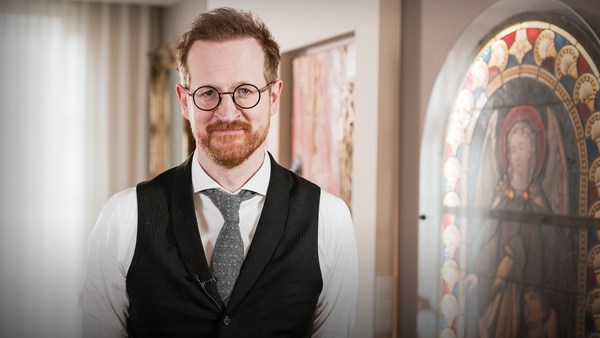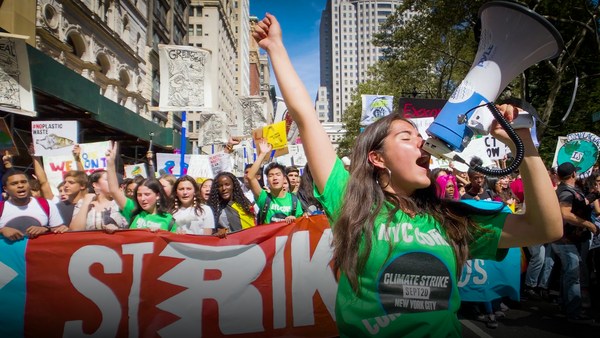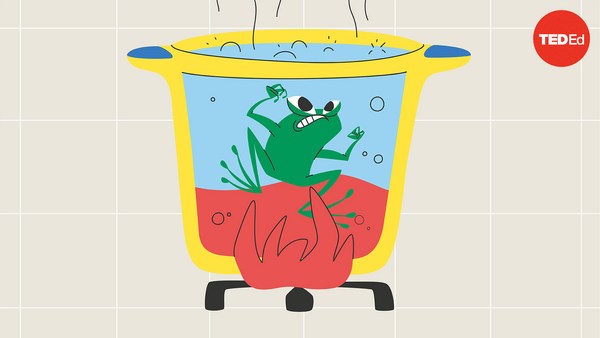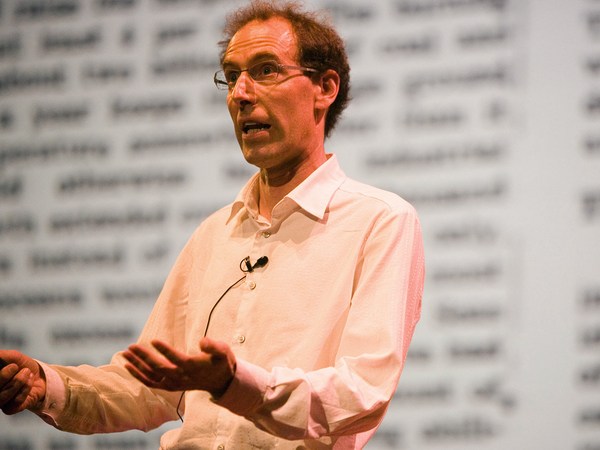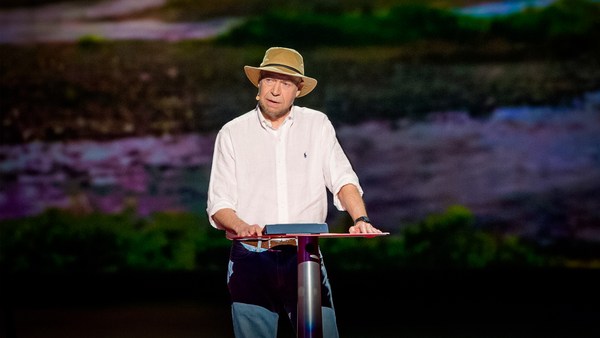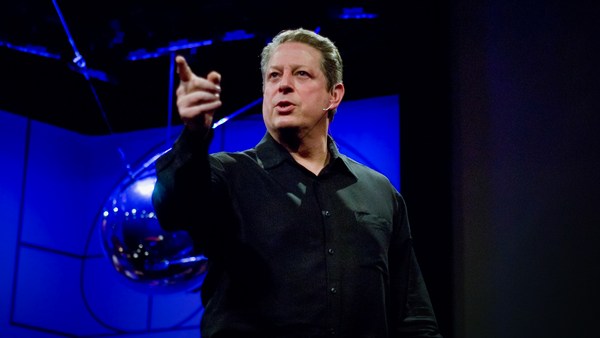I often have this strange thought that aliens come down to Earth to check us out. They beam up a hundred scientists and they ask them, "What's going on on your planet?" And the aliens quickly learn something: that all of these scientists have concluded that pollution from our industrial activity is irreversibly heating the earth in a way that will make it very hard for us to live here safely.
Then they do the same thing, but this time they beam up another 100 people, and they're not scientists, they're regular people like us. They could count on one hand how many of those people would even mention climate change. Two or three dozen of them may never have even heard the term. And among the Americans in the group, only one in four would be highly concerned about the issue. The aliens, I think, would be shocked. "Why don't people know what's happening or how bad it is? Someone should tell them!" The absurdity of the situation is so clear and so real. What we have here is a failure to communicate.
My job is to educate people about climate change. So I look at the concepts, the messages, the images and the terms, and I test them with millions of people. I'd like to tell you what I'm learning. For so many people, climate change seems abstract, distant, too big to imagine. The words we often use to describe it -- emissions, CO2, methane, net zero, anthropogenic -- are, simply put, confusing. Not that many people wake up in the morning and say, "It's a great day for some decarbonisation." These words become obstacles rather than gateways to understanding, let alone caring.
The way to fix this failure to communicate is to start not by talking about the issue, but to start with people, to think first about individuals, the people who have millions of other things on their mind, a million worries and challenges and hopes and aspirations. Climate change is one of the biggest threats humanity has ever faced, and we won't face it, not to the degree that's necessary, if people don't care.
The people-first approach to climate communications demands three simple things. The first one is plain, obvious and universal language. One thing for sure people don't readily get -- carbon emissions, net zero -- are most terms that can be found in a science book. And frankly, to the uninitiated, much of it doesn't really sound that bad. "Two degrees warmer in 50 years," or it sounds so bad, you can't even get your head around it -- "1.2 trillion tons of ice." Confusion and hopelessness are the enemies of understanding.
A good test for language is, what pops into your head when you hear it. If you hear a term like "climate change," what pops into your head? Well, for most people, the answer is "not much." The language isn't vivid. What we need is vivid language that everyone gets.
It's remarkable how many people actually confuse climate change with the ozone hole. More than four in 10 Americans think the ozone hole actually causes global warming. And so many of them remember and understand so much about ozone depletion. Why is that? Because it's a hole, it's a layer. People can see it, imagine it, relate to it. It uses simple metaphor that's an instant get.
Here's a little story that gets a similar "aha" for climate change. Humans have been on Earth for about 300,000 years, but we've only started polluting like this in about the last 60. Our pollution stays in the air for thousands of years, creating a thickening blanket that traps heat in the atmosphere. That heat causes stronger hurricanes, bigger fires, more frequent floods and the extinction of thousands of species. But there's good news. To stop the pollution blanket, we just have to stop polluting. This "pollution blanket" framing is one of the most effective we've tested at getting people to understand the issue. It's visual, it's vivid, and when people hear the message, they become significantly more engaged. They get it.
There are so many other regular speak words and concepts that stick with people. Instead of "warming," try "overheating." Instead of "climate," talk about "extreme weather." When mentioning "clean energy," you might say "cheap energy" as well, as it's rapidly becoming cheap. The word "irreversible" really gets people's attention, as the pollution certainly is. And if you absolutely must talk about temperature increases and you live in the US, heck, use Fahrenheit for goodness sake. It doubles the severity. "Nine degrees during your kid's lifetime" sounds pretty serious. "One point five degrees Celsius to meet the Paris Accord" is pretty ignorable.
This is about going beyond arcane policy language into language that we all intuitively get. That's the first step: understanding. But understanding without relevance is rudderless.
So the second key then is to make climate feel like something that matters to you, to your life, individually and personally. Nobody has an epiphany about policy proposals. Awakenings are personal. They have local relevance. They're about your life and your concerns. As an example, we presented two messages to a few thousand people in Florida. One asked them "to demand that we get to zero emissions to stop climate change." Another simply said, "Stop my flooding." The latter message was over four times more effective in getting their attention. Local flooding was so much more relevant than global warming. What's needed isn't better policy descriptions, but rather deeper, more personal connections.
Here's another example. We work with a team of remarkable women climate scientists to help elevate their voice as messengers. They've dedicated their careers to studying the issue, developing complex computational models to understand the Arctic processes, and climbing into planes to measure nitrogen in wildfire smoke. They could tell you everything you need to know about the science, but what we asked them about was why they study it. And they told us about their daughters and their sons, about wanting to keep the world safe and healthy and vibrant for their children. And when we shared these personal stories with other parents, they started to care far more deeply about climate change than they did from staring at charts of global temperatures. People see a parent who's dedicated their life to creating a better world for their child. Every parent can relate to that. It matters to me.
The right messages are those that connect climate change to personal identity. Our life -- not future lives, not the world -- our community, not necessarily environmentalism -- our values, and not just children -- our child.
Finally, the third key to the climate communications puzzle to show that climate change is an issue for people like me: Humans are social animals, and that's true for how we form our beliefs, too. You can present the exact same message to many people, but when it comes from someone with a similar accent or background, we see double-digit increases in message effectiveness. Here's an unexpected messenger who really lands the point. A guy we call Florida man. He's a resident of North Florida who got into a little trouble with the law after taking an alligator into a convenience store when he was on a beer run. Not exactly the most obvious climate change messenger yet when he appeared in an internet ad describing in his own way how he's worried about his way of life, it significantly increased climate concern among young conservative men in Florida. Most people don't see themselves as "environmentalists" per se, and they see climate change as an "environmentalist issue." But messages that break away from those narrow identity markers make the issue relatable. They give people a reason to care. So the core idea is that instead of explaining the issue at people, it's essential to bring people into the issue, so that they say, "I get it. It matters to me. It matters to people like me." Then and only then are we primed to take action.
If the intelligent aliens in my story were also intelligent at communications, they would say to us, "Hey, Earthlings, pay attention, you're building up a massive blanket of pollution that's overheating your home. And it's going to hurt the people and the things that you love. You did this and you can fix it." We simply have to let our fellow eight billion inhabitants of our home know what's happening. We have no choice. And when we do, we'll achieve the public will necessary to take on this colossal but winnable fight for our future.
Thank you.
